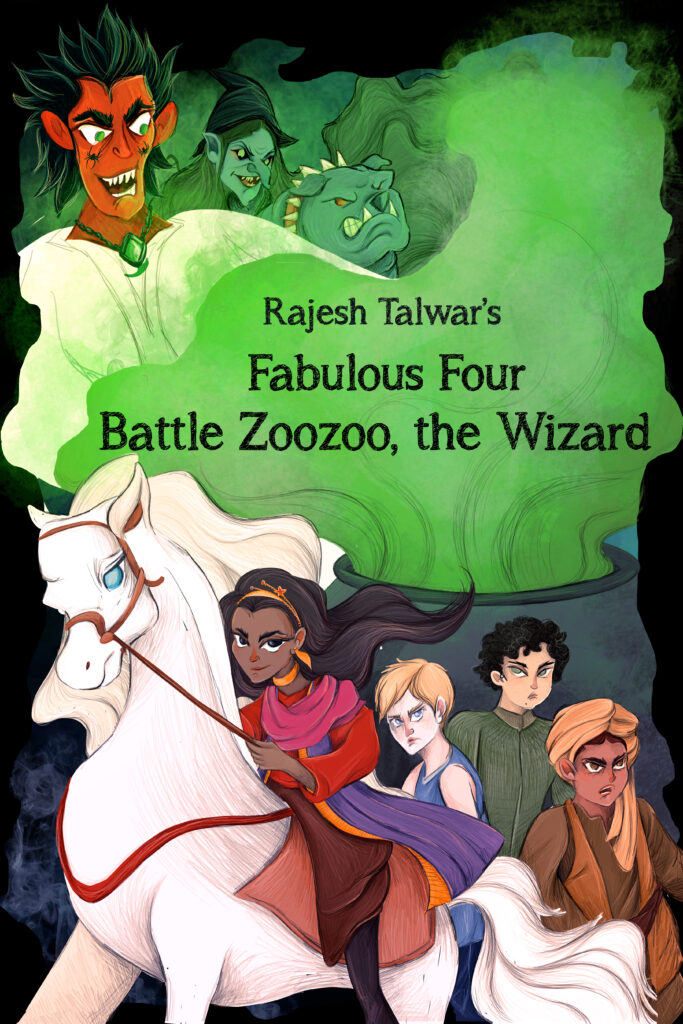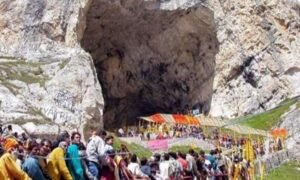Rajesh Talwar, a noted screenplay writer, author of several books and a lawyer is back with his latest book – The Fabulous Four. He has wowed all in the past with his well received books – Courting Injustice: The Nirbhaya Case and Its Aftermath (Hay House), The Judiciary on Trial (Cosmos Publications) and The Third Sex and Human Rights.
He has penned two novels, namely An Afghan Winter and The Sentimental Terrorist’(Create Space). His other children’s books are ‘The Bearded Prince’, ‘The Three Greens’ (Orient BlackSwan) and The Sleepless Beauty. And has showed her versatility too with popular satire on the law criminalising homosexuality Inside Gayland. His more recent plays include Kaash Kashmir that examines the conflict in the valley and Gandhi, Ambedkar and the Four-Legged Scorpion, a historical play on Gandhi and Ambedkar.
Here in a candid interview he opens up on his latest book , Jammu And Kashmir, the media frenzy over Sushant Singh Rajput case and much more.
Excerpts :
Q : Your latest book has an intriguing Title . Any reason for it ?
A : I’m glad you find it intriguing. I wished for it to provoke curiosity and interest. I wished also to write something that would appeal to a more contemporary audience and go beyond the tales of Tenali Ram and the Panchatantra.
Q : What does the book deal about?
A : It’s a children’s adventure story. A group adventure story of a battle between good and evil played out in a fantastic world with echoes of the world we know. Comparable books would be Famous Five series, The Secret Seven, or the Hardy boys but those are written from a Western perspective and this book is written from an Eastern point of view. In my view such an architecture has not been attempted before, at least not in this manner..
There are tens of thousands of children’s books out there – but when was the last time you read a book which had a young female princess as the lead character. Not so long ago? But when was the last time this girl was the leader of a group/gang of three boys? will have to think about that one.
I doubt you’ll find such a book but even if you do, you won’t find a book where the female lead has teamed up with three boys of varying skin colours – the boys from the Hotlands, Wetlands and Snowland. There is a strong underlying message of racial unity in the book. The skin colours of the Fabulous Four are sufficiently varied to include most of the world.
One cannot get more politically correct than this premise for a children’s book, but such progressiveness apart the story-line immediately opens up the possibility of a global reading audience for the book and the film which will hopefully come later.
As a matter of fact an Indian film maker based in the UK did recently get in touch with me on the possibility of having little superheroes in a story line told from an Eastern perspective. Let’s see how those discussions unfold.

Q : Among the books which you had written earlier namely – Courting Injustice: The Nirbhaya Case and Its Aftermath (Hay House), The Judiciary on Trial (Cosmos Publications) and The Third Sex and Human Rights etc. Which one did you enjoy writing most and why?
A : It’s really difficult to say. I felt passionate about each one of these books. I was posted in East Timor with the United Nations when Nirbhaya happened. I couldn’t sleep for a few days; it was so disturbing and I determined to write on it. Fortunately, a Hay House editor Sanjana Roy Chowdhury showed interest and Courting Injustice found a publishing home without much difficulty. It sparked some debate though not sufficiently so.
The Judiciary on Trial was my first non-fiction book published and I feel especially fond of it for this reason. When it first came out in a paperback avatar it was reviewed by Khushwant Singh in his column With Malice Towards One and All. That single review got me to receive about a thousand letters from different parts of the country all complaining about the justice system. I even got letters from Sri Lanka and Nepal. Can you imagine?!
The Third Sex and Human Rights was the first book of its kind published way back in 1999. At that time there was practically no discussion on the rights of transgenders. Even civil liberties groups like the Peoples Union for Democratic Rights didn’t take these issues seriously. Till then there had been books on hijras but not written from a human rights perspective.
Q : You are a versatile writer. so which genre do you like writing on fiction or non-fiction?
A : I enjoy writing fiction and non-fiction both. I find it easier to carry on with my day to day duties as an international civil servant while writing non-fiction. I reserve fiction writing for the time when I have a break or holiday for one or two weeks.

Q : You had done a play titled Kaash Kashmir. How do you see the situation now post Article 370? Do you see it as a new beginning?
A : I believe the government’s decision on Article 370 is a very important and long overdue step in the right direction. We speak of minority rights but what about the rights of other minorities who live in a place where a minority is a majority. I think its shameful that we sort of abandoned our Kashmiri Hindu brethren and sisters for so many decades.Forced to live in refugee camps in their own country.Absolutely shameful! Leaving aside the case of Hindu Pandits who were forced to flee their homeland,there were Nepali families and Punjabi Hindu families who had lived in the state for decades without any right to employment in the state government. Previously there have been non-Kashmir women who hadn’t acquired state residency rights despite being married to Kashmiris. Were we fair to them?What about the Ladakhis ? All these minorities have been empowered and have celebrated.
Q : Any interesting you have read off late? And any writer you admire most
A : I’ve just finished reading Bastar Dispatches: A Passage through the Wilds by Narendra. Its fascinating stuff. Unlike academic books its full of anecdotes and paints a very real portrait of the tribals. It questions our ideas about development and is particularly significant in the time of Corona. We need to be asking ourselves: What do we need to do to make sure that some other Corona variant doesn’t visit us in the future? Do we really need to have these wet markets in China and South East Asia? Do we realise how the humane treatment of animals and preservation of the environment is so closely linked to our own survival as a species? Writers I admire most – Maupassant and Dostoevsky are all time favourites.
Q : You have written on the Nirbhaya case how do you see the national obsession with the unfortunate death of Sushant Singh Rajput. Where media is literally seen running a parallel trial.
A : We don’t have a developed media law in the country unlike say the United Kingdom where these matters are far better regulated. You will not have such a trial by media in the UK. There is a reason why the media has so much play here unlike the situation there.Mainly this has to do with the length of time cases take here. In the UK too there are delays but matters generally get sorted and decided in a year or so.
Here in India we are talking of decades in both civil and criminal matters. You can put curbs on the media if the case is going to be decided in six to nine months not if it’s going to take ten years. As the saying goes, in India cases are filed by one generation and verdicts received by the next. Even the Nirbhaya case took so many many years to come to a conclusion. We need to invest in the courts infrastructure so that ordinary people have access to speedy justice. But investment in the justice machinery yields results after many years and so no government seems to be interested.
Q : Do you see this SSR coverage as a diversion from other pressing issues like – Covid-19 Pandemic , Economy, China border face-off , Jammu and Kashmir etc.
A : Justice and police reform are hugely important issues. Not only the Maharashtra police but the police all over the country needs reformation. Right now, India’s police population ratio is among the lowest in the world. The ability of the police to conduct proper and through investigations is questionable. There are many reasons for this but one important factor is that we don’t place sufficient resources at their disposal. India’s judge population ratio is also among the lowest in the world.
If the SSR coverage just remains something to gossip about it will be very sad. It raises many issues about the quality of police investigations and the state of law and justice in the country. What a chaotic investigation! We need impartial policing free from political interference. If SSR coverage doesn’t lead to systemic reform it will have been a waste. Will it lead to systemic reform in policing and the administration of justice? I earnestly hope so but after Nirbhaya I have my serious doubts.
[the_ad id=’22723′]


















